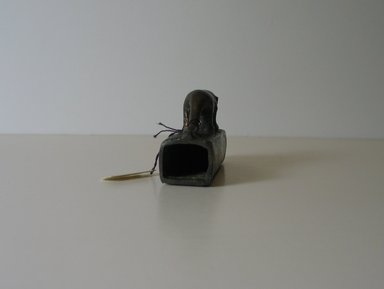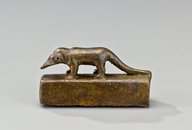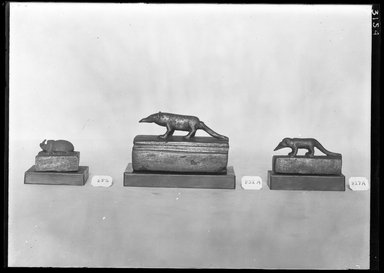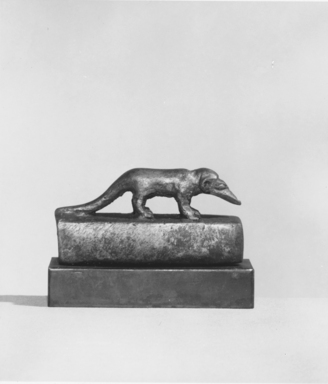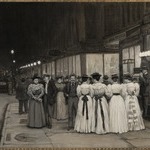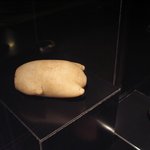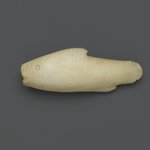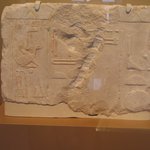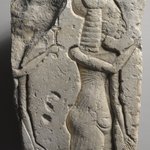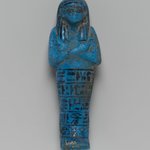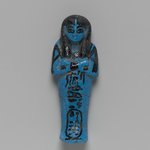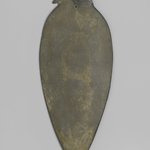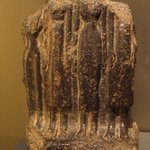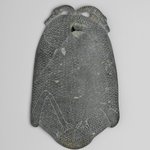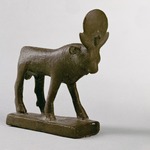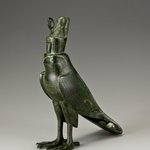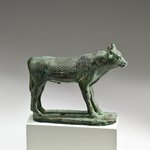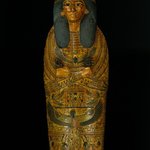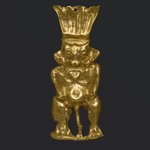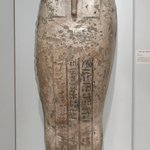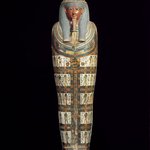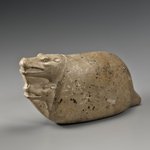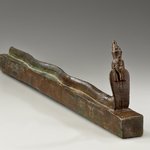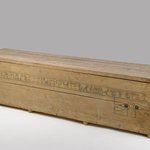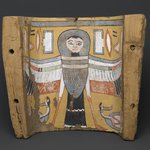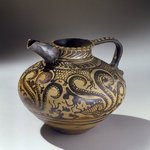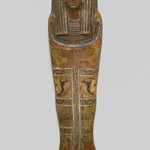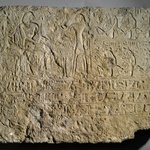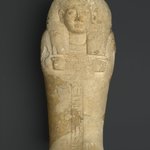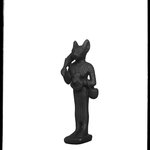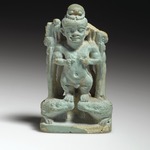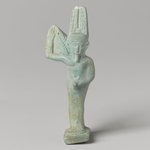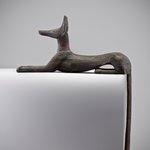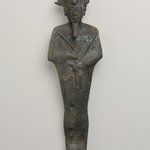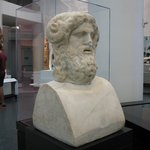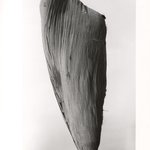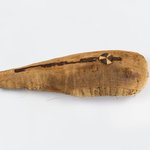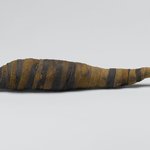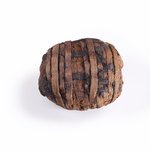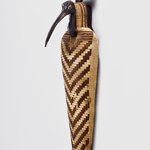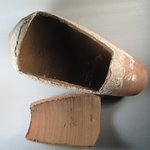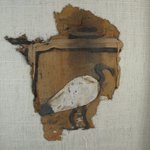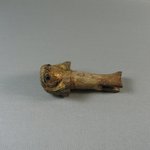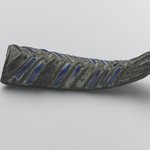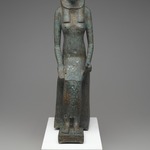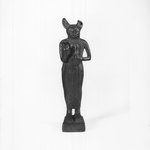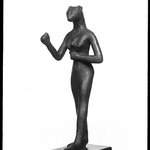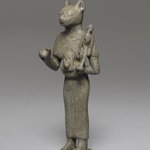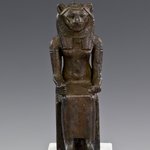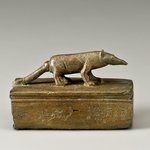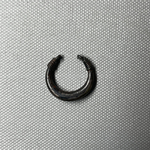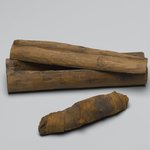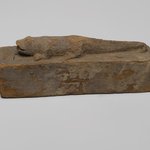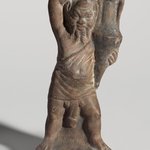Shrew Coffin
Egyptian, Classical, Ancient Near Eastern Art
The Egyptians venerated the shrew, a mouse-sized nocturnal creature, because they believed it to be the counterpart for the ichneumon, with full vision during the night.
MEDIUM
Bronze, animal remains
DATES
664–30 B.C.E.
DYNASTY
Dynasty 26, or later
PERIOD
Late Period to Ptolemaic Period
DIMENSIONS
1 5/16 x 3/4 x 2 1/2 in., 0.2 lb. (3.3 x 1.9 x 6.4 cm, 0.08kg)
as mounted: 1 1/2 x 7/8 x 2 1/2 in. (3.8 x 2.2 x 6.4 cm)
(show scale)
ACCESSION NUMBER
37.410Ea-b
CREDIT LINE
Charles Edwin Wilbour Fund
CATALOGUE DESCRIPTION
Bronze animal coffin (37.410Ea) surmounted by a figure of an ichneumon. The shrew has minimal details outside of the general body, head, and eye shape, featuring incised detail only to depict ear canals and toes.The coffin is even simpler in design. It is an undecorated rectangular block with an open back showing the hollow interior of the object. Contents (37.410Eb) removed.
Condition: The entire object is well-preserved and shows scant damage on any of its surfaces.
MUSEUM LOCATION
This item is not on view
CAPTION
Shrew Coffin, 664–30 B.C.E. Bronze, animal remains, 1 5/16 x 3/4 x 2 1/2 in., 0.2 lb. (3.3 x 1.9 x 6.4 cm, 0.08kg). Brooklyn Museum, Charles Edwin Wilbour Fund, 37.410Ea-b. Creative Commons-BY (Photo: Brooklyn Museum (Gavin Ashworth,er), 37.410E_Gavin_Ashworth_photograph.jpg)
IMAGE
overall, 37.410E_Gavin_Ashworth_photograph.jpg. Brooklyn Museum photograph (Gavin Ashworth, photographer), 2012
"CUR" at the beginning of an image file name means that the image was created by a curatorial staff member. These study images may be digital point-and-shoot photographs, when we don\'t yet have high-quality studio photography, or they may be scans of older negatives, slides, or photographic prints, providing historical documentation of the object.
RIGHTS STATEMENT
Creative Commons-BY
You may download and use Brooklyn Museum images of this three-dimensional work in accordance with a
Creative Commons license. Fair use, as understood under the United States Copyright Act, may also apply.
Please include caption information from this page and credit the Brooklyn Museum. If you need a high resolution file, please fill out our online
application form (charges apply).
For further information about copyright, we recommend resources at the
United States Library of Congress,
Cornell University,
Copyright and Cultural Institutions: Guidelines for U.S. Libraries, Archives, and Museums, and
Copyright Watch.
For more information about the Museum's rights project, including how rights types are assigned, please see our
blog posts on copyright.
If you have any information regarding this work and rights to it, please contact
copyright@brooklynmuseum.org.
RECORD COMPLETENESS
Not every record you will find here is complete. More information is available for some works than for others, and some entries have been updated more recently. Records are frequently reviewed and revised, and
we welcome any additional information you might have.
What Egyptian god is the shrew is supposed to be associated with?
Shrews were used to stand in for the ichneumon, the African mongoose. The ichneumon was associated with Horus and the god Atum, and was worshipped for it's ability to see in the dark and ability to kill snakes.
You might have seen a small statue of a king and (much larger) Ichneumon elsewhere in the exhibition!
Interesting! I knew the ichneumon was variously worshipped, also as the goddess Mafdet, but I didn't know the shrew could be a possible stand-in for it.
Isn't it fascinating?
It really is!



